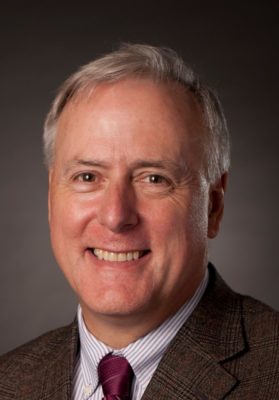 Andrew J. Whittle, the Edmund K. Turner Professor of Civil and Environmental Engineering at MIT, has been selected as the 2017-2018 Cross-USA Lecturer for the Geo-Institute of the American Society of Civil Engineers.
Andrew J. Whittle, the Edmund K. Turner Professor of Civil and Environmental Engineering at MIT, has been selected as the 2017-2018 Cross-USA Lecturer for the Geo-Institute of the American Society of Civil Engineers.
Dr. Whittle earned his BSc. (1st class honors) in Civil Engineering from Imperial College in 1981 and Sc.D in Geotechnical Engineering at MIT (1987). He joined the MIT faculty as an Assistant Professor in 1988, became a Full Professor in 2000 and has served as Head of the Department of Civil and Environmental Engineering, 2009-2013. Dr Whittle is an expert in geotechnical engineering, whose research deals principally with formulation of constitutive models for representing the complex mechanical properties of soils and their application in predicting the performance of foundations and underground construction projects. His research has been widely used in the design of foundation systems for deepwater oil production facilities and in major urban excavation and tunneling projects including the Central Artery-Third Harbor Tunnel ('Big Dig') in Boston, and Tren Urbano in San Juan, Puerto Rico. Most recently he has led research efforts in the application of wireless sensor networks for monitoring underground water distribution systems and construction projects. He serves as Chief Scientific Advisor for an associated spin-off company, Visenti Pte. Ltd. that provides smart water analytics services (acquired by Xylem Inc. in 2016).
Dr. Whittle is a Co-Editor of the International Journal of Numerical and Analytical Methods in Geomechanics (since 1999). He is an active consultant who has worked on more than 30 major onshore and offshore construction projects and was an expert involved in the investigations into the collapse of the Nicoll Highway in Singapore (2004-2006). He has also served on a series of major review panels: for the National Research Council and National Academy of Engineering (NRC/NAE) investigating the performance of hurricane protection systems in New Orleans; for the Governor of Massachusetts on a 'stem-to-stern' safety review of the Big Dig tunnels in Boston; for the Chief Executive of Hong Kong investigating the delay in the works of the Hong- Kong section of the Guangzhou-Shenzhen-Hong Kong Express rail link (XRL); and as a member of the Board of Directors for the Massachusetts Department of Transportation (2009-2015).
Dr. Whittle has published more than 200 papers in refereed journals and conferences, and received several awards for his work from the American Society of Civil Engineers, including the Casagrande Award (1994), the Croes Medal (1994), Middlebrooks Prize (1997, 2002, and 2005) and Huber Research Award (1998). He is a licensed professional engineer in New York State. In 2010 he was elected to the National Academy of Engineering.
Lecture Topics for Cross-USA Lecture Tour 2017-2018
1. Advances in the prediction and control of ground deformations
There are many diverse geotechnical problems where reliable predictions of ground deformations are critical in design and only limited options are available to control these movements. This lecture will compare and contrast experiences in the application of advanced constitutive models in the prediction and control of ground movements in four distinct classes of problem: urban excavations, mechanized tunneling, seismic retrofit of waterfront structures, and long-term prediction of settlements on clay.
2. Integrated numerical modeling and measurements of excavation support systems
This lecture will describe recent progress on the integration of online measurements (structural monitoring and remote mapping) and numerical analyses to reduce risks during associated with the construction of excavation support systems. The lecture includes examples from recent case studies in Boston and Singapore involving deep excavations in soft clays.
3. Prediction of ground movements associated with tunneling
This lecture describes the development of new analytical and numerical methods to predict ground movements associated with open-face shield and closed-face EPB tunneling projects. We will demonstrate the applicability of these solutions for predicting the impacts on tunneling on adjacent facilities and the control of mechanized tunneling with mixed face conditions using data from recent projects in London and Singapore.
4. Pitfalls and challenges for reliable analyses of staged construction on soft ground
The construction of embankments and levees on soft ground is often enabled by staging the sequence of loading events to allow for consolidation of low permeability clay and associated changes in the available undrained shear resistance. Although it is apparently straightforward to use numerical methods to solve these problems, it has proved surprisingly difficult to achieve accurate predictions of performance. This paper will review some of the pitfalls associated with analyses of staged construction on soft ground and two enduring challenges: 1) lateral spreading during consolidation, and 2) settlements associated with creep and consolidation.
